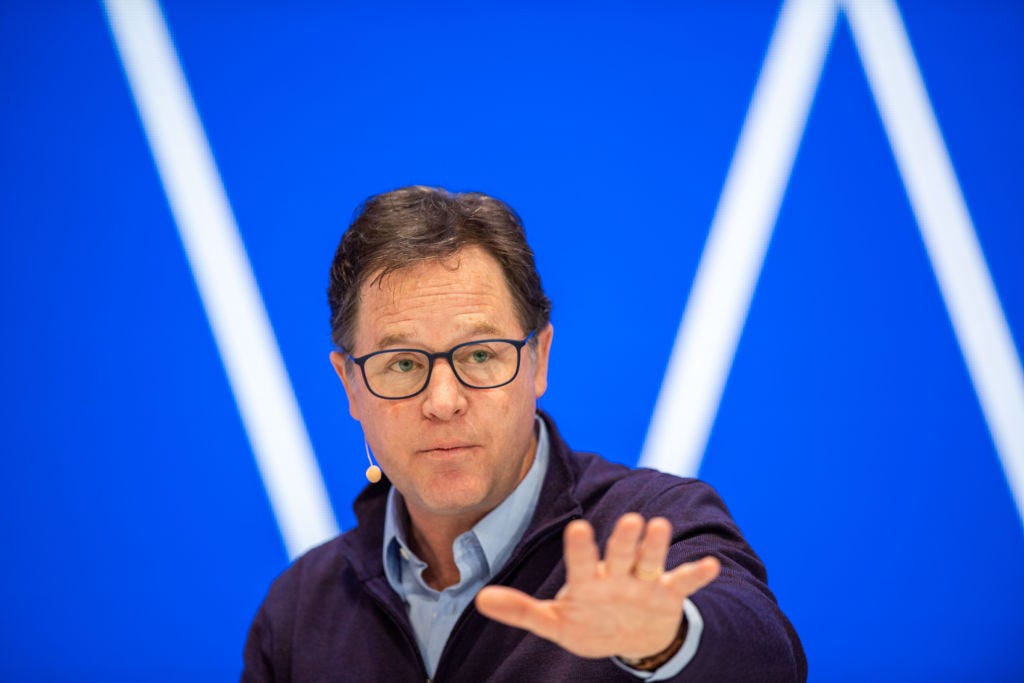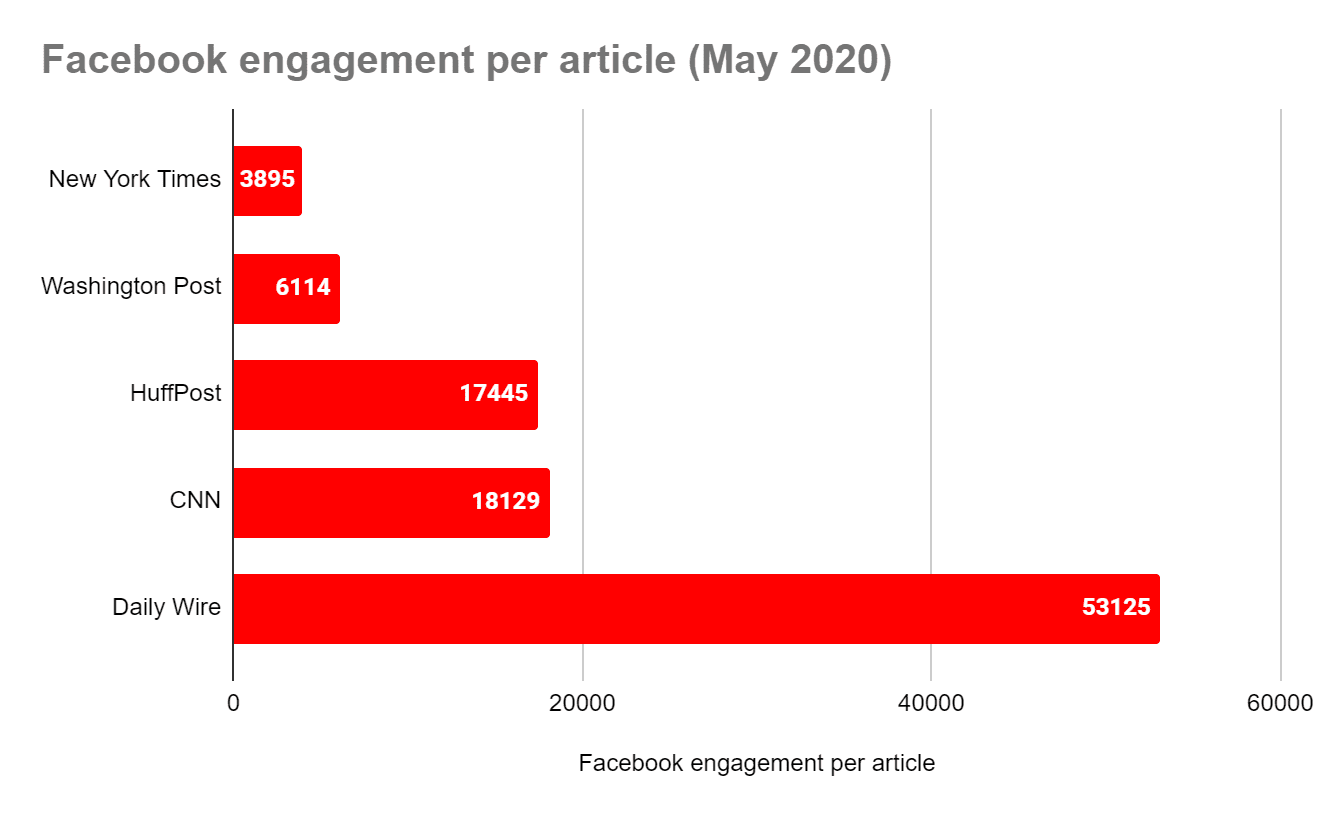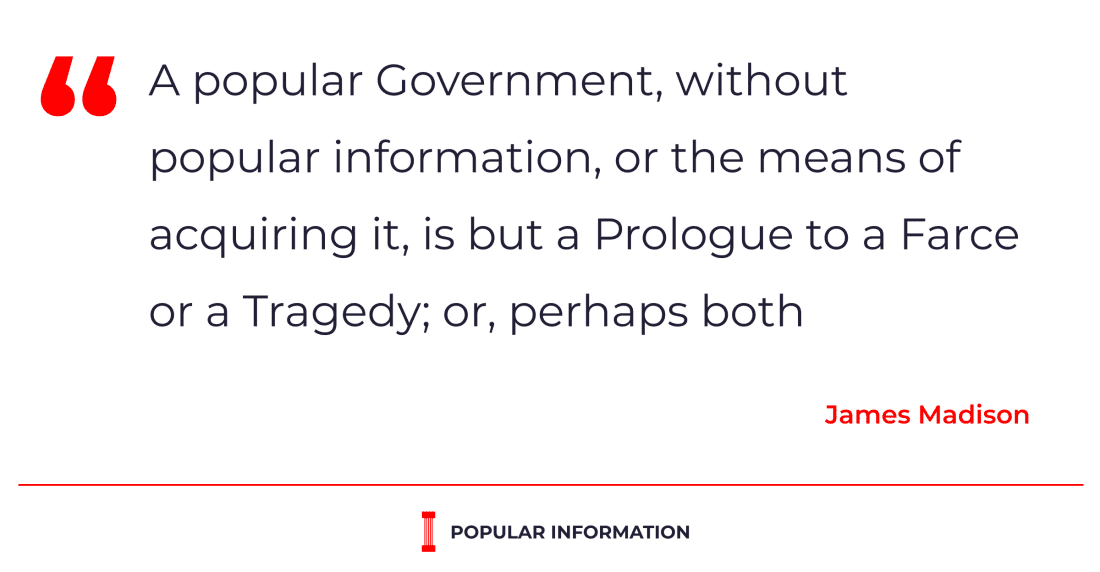 |
Facebook executive Nick Clegg (Photo by Lino Mirgeler/picture alliance via Getty Images)
On Friday afternoon, in an effort to stem the advertiser exodus, Facebook CEO Zuckerberg had outlined a series of new policies he said would "crack down on voter suppression and fight hate speech." It didn't work. Zuckerberg's proposals were derided by the coalition leading the effort, Stop Hate For Profit, as "a small number of small changes" that won't "make a dent" in Facebook's problems.
On Saturday morning, Popular Information reported that 125 companies had decided to stop advertising on Facebook during July in protest of Facebook's role in spreading hate and misinformation.
Advertisers have continued to abandon the platform. In the last three days, 103 more companies have said they are suspending advertising on the platform in July. The group includes Starbucks, Ford, GM, Clorox, Reebok, Adidas, Best Buy, Clif Bar, Chobani, and Denny's.
"As America's diner, we offer an inclusive and welcoming environment where all people can enjoy a nice meal and we strongly oppose hate speech of any kind. It is our belief that Facebook has not done enough to address this important issue on its platform and we are calling on Facebook to make positive changes in its process for combatting hate speech and disinformation," Denny's said in a statement.
With Zuckerberg's gambit falling flat, Facebook has launched a public relations blitz to contain the damage. The company has dispatched Nick Clegg, the former Deputy Prime Minister of the UK and current Vice President for Global Affairs and Communications at Facebook.
Clegg's appearances on CNN, MSNBC, and Bloomberg, however, show that Facebook is still in denial. The company is not willing to acknowledge the scope of its problems or make a good faith effort to address them.
Clegg: Facebook is just a "mirror to society"
On CNN, host Brian Stelter asked Clegg what Facebook was doing to combat divisive speech on its platform. Clegg's response was there was nothing Facebook could do because the divisive content was merely a reflection of broader societal trends.
Yes, and I'm afraid that in a highly polarized time in U.S. society, particularly in the run-up to this highly consequential election in November where, you know, people are shouting at each other from right and left, and where, of course, in some sense, Facebook is a mirror to society. We're a private company but we run the platform on which America democracy plays itself out in all of its -- in all of its sort of glory and ugliness.
As Popular Information reported last week, this is not true. Facebook is allowing sites that specialize in divisive content, like Mad World News and The Daily Wire, to manipulate Facebook's algorithm through undisclosed financial partnerships.
Ten or more times each day, a network of five large Facebook pages controlled by Mad World News publishes the same link to The Daily Wire. Although this appears to violate Facebook's prohibition on undisclosed sponsored content and coordinated inauthentic behavior, Facebook has refused to take action. This has made The Daily Wire — a cesspool of misogyny, bigotry, and misinformation — to outperform every other major publisher on Facebook.
 |
Apart from The Daily Wire's underhanded tactics, Facebook's algorithm favors divisive content. An internal Facebook report from 2018 found that Facebook's "algorithms exploit the human brain’s attraction to divisiveness." Unless changes were made, users would post "more and more divisive content in an effort to gain user attention & increase time on the platform,” the report concluded. Facebook declined to take steps to meaningfully change the algorithm because "some proposed changes would have disproportionately affected conservative users and publishers."
In society at large, The Daily Wire is not a more successful publication than the New York Times or the Washington Post. But Facebook has constructed an alternate reality where divisive content dominates.
Clegg: Facebook's "independent" fact-checkers can stop viral misinformation
Stelter also asked Clegg about why misinformation thrives on Facebook. He gave an example of a viral Facebook post that falsely claimed Black Lives Matter activists defaced the Vietnam Memorial.


Clegg responded that Facebook's "independent" fact-checkers were well-positioned to reduce the distribution of this kind of content.
Well, I think what we need to do with things like that, because as you know, we work with over 60 fact-checkers in over 50 languages around the world. They work independently of Facebook. And what they do is they look at things like that and then label it as false or partly false, and then it gets massively downgraded on people's news feeds, less prominent.
The post at issue was fact-checked by a Facebook partner, Politifact, but that didn't prevent it from accumulating 200,000 shares.
As this newsletter reported in February, Facebook's fact-checking program is vastly under-resourced. A Popular Information analysis found Facebook's U.S. fact-checking partners were able to evaluate 302 posts in January 2020. This is a drop in the bucket in the context of Facebook's 200 million users in the United States, who post millions of pieces of content every day.
Facebook's total investment in the program in 2019 was about $2 million, or 0.003% of its annual revenue.
Many of the posts that are fact-checked are more than a week old. That's why the fake photo of the Vietnam War memorial was able to accumulate 200,000 shares despite being rated false.
There is also evidence that Facebook's fact-checking program is not as "independent" as Clegg suggests. Popular Information reported last week that Facebook, at the behest of climate science deniers, overruled a "false" rating on a Washington Examiner column, which claimed climate models were inaccurate. In so doing, Facebook overruled five Ph.D. climate scientists who determined the piece was false.
Clegg: There is more "good" content than "bad" content
On MSNBC, Clegg emphasized that most content on Facebook is not hate speech.
It is not true that Facebook is awash with hate speech. Thankfully the vast majority of what is on Facebook is small businesses connecting with their local customers, the dad organizing a Facebook group for his daughter's football team, people exchanging photos and videos of family events.
This seems to be suggesting that innocuous or "good" content can offset the impact of hate speech. This low bar doesn't reflect the reality that divisive and violent content has on society.
As Popular Information reported, two men who met in a Facebook group dedicated to the violent and racist Boogaloo movement have been charged with murdering a federal officer. Yet Facebook has still allowed the Boogaloo movement to organize on its platform and has failed to enforce its rules around violent content.
No matter how many cute dog photos are published on Facebook, "good" content does not diminish the scope of the problem.
Thanks for reading!
 |

